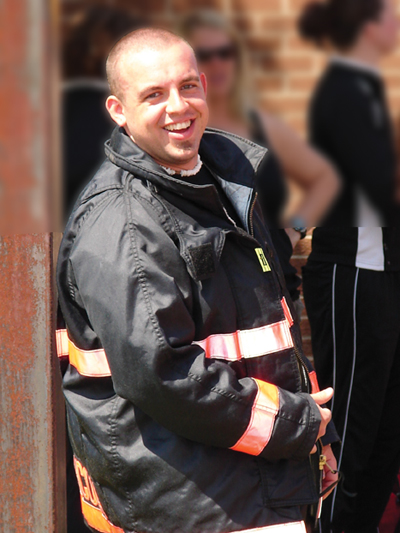
Between Alarms: July 2009
By Jesse Challoner
Features Hot Topics OpinionEducation and experience are not the filling of the tank with water, but the lighting and burning of the fire itself. – William Butler Yeats
 |
|
Education and experience are not the filling of the tank with water, but the lighting and burning of the fire itself. – William Butler Yeats
At the foundation of our industry there is a core concept; extinguish fires and care for the sick and injured. The beauty of this mandate comes from its simplicity, but often our job is not all that simple. Yeats’ quote epitomizes an integral aspect of our profession: the inherent importance of continuing education and the irreplaceable value of experience.
We have all had service-related education in some regard, be it NFPA 1001 certification through academies, EMS training in a college setting or the many in services in which we participate during shifts. The bottom line is that we all have an understanding of where to start. But where do we go from there? How do we become truly experienced and educated so that we can make the correct and crucial decision when the time comes?
Our careers as firefighters and paramedics are dynamic and our jobs change from day to day, even from call to call. Because of this it is paramount that we stay on top of the evolutions in practice. If we fail to do this, we are failing the communities we serve and our brothers and sisters in the fire/EMS services. If we are to be the example and embrace the ever-changing environment, we must be versatile, adaptable and open to progressive concepts. By accepting the fact that we will never know all there is about fire fighting and EMS we give ourselves the opportunity to learn and we will inevitably become more rounded and resourceful.
Every day presents an opportunity to harness more expertise. This could be through picking up a fire fighting magazines strewn on the coffee table and reading about fire behaviour, or taking a course pertinent to our EMS skills. Personally, I find that most of my education since graduating fire/EMS school has come from watching and listening while on responses. There is an indispensable resource at our fingertips in the members who have done the job for years, particularly in those who make it their mission to continually learn themselves. I have yet to be part of a job where I didn’t learn something for the next time that someone calls 911.
I would like to share a habit that I picked up early in my time on the job. It’s a sort of bucket list that I keep to remind myself of the many aspects of my career in which I would like to become more proficient. I keep a paper list of 20 or so items that require my attention to some degree. The items range from different ways to stretch an attack line, pump operations and calculations for discharge pressure to rope knots and tactics, medication dosing, positive pressure ventilation, ladder raises and tie offs and CPR algorithms. With this list in hand, on every shift I identify one or two things that I will cover that day/night. Often I will enlist one or all members on my crew and we will train together. When we’ve covered the topic for the day/night, that item gets crossed off of my list. With that
being said, it seems that for each topic covered, a new one makes it’s way onto the list.
I suggest taking a personal account of your education and experience level from all possible aspects of your position. There are areas of improvement for all of us and it is our responsibility to be accountable for deficiencies in our skill set. It is not a weakness to require additional experience or education in any area. The real problem is in not stepping up and actively changing the situation. We must be progressive and possess the fortitude to continually challenge ourselves to always move forward with our knowledge and competence.
This ideology holds true for further education also. I am a proponent of continuing education in all regards. For some, this entails obtaining a university degree; for others it means taking courses geared toward their niche. Regardless which path one walks, out of education comes experience. When we are able to apply the education that we have acquired through reading, study, or lectures in a practical setting we establish the experience to refine, hone and improve our expertise.
Another way to practice continuing education is through teaching. Becoming an instructor of a concept or skill forces us to become thoroughly proficient in that area. This helps us identify our strengths and weaknesses and enables us to rectify any inconsistencies. Teaching can be a valuable tool for two main reasons: we pass on our knowledge to those who lack the experience; and we polish and maintain our own skill set so we don’t get rusty.
If you take one thought from this, let it be to not settle, but to progress. This self-development comes from the inherent drive firefighters and paramedics have to be the best, period. Understand that in a dynamic field such as ours, we must push ourselves to excel and to have the expertise required to answer the call. I know I will never be finished learning; it is those around me who help me to realize my own potential, and push me to be better every day, in everything that I do.
Jesse Challoner has been with Strathcona County Emergency Services for 2.5 years and has been in the emergency services field since 2002. He is an EMT and is completing the two-year paramedic program at the Northern Alberta Institute of Technology. Contact him at jchalloner@hotmail.com
Print this page